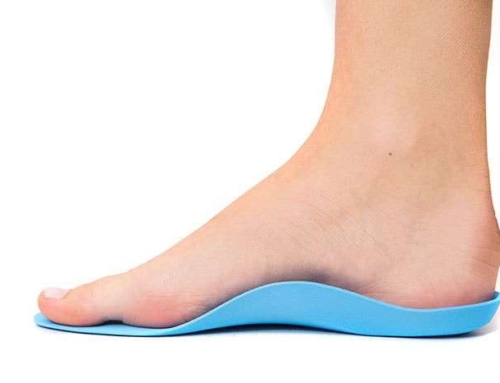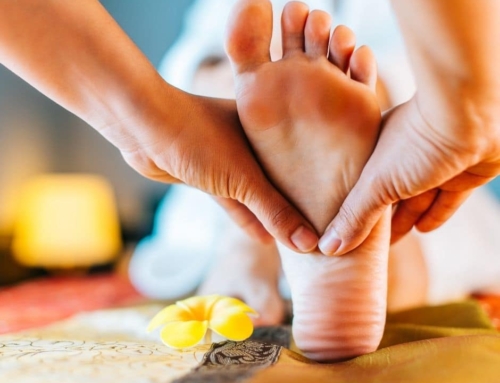One of the common problems with feet is called Plantar Fasciitis. For some individuals, the pain comes on slowly but gets worse with time. For others, the pain hits hard and they may feel like they have broken something in the foot. Doing your part to successfully treat it and prevent it from coming back are important.
Plantar Fasciitis is the result of tissue around the arch of your foot becoming inflamed. The pain tends to be worse first thing in the morning when you get out of bed. Typically, it will be in one foot or the other but there are those who experience in both at the same time. This is especially true for those with Rheumatoid arthritis as the inflammation is usually symmetrical.
There are plenty of different reasons a person may struggle with Plantar Fasciitis. The design of the feet isn’t the same for everyone. Some people have flat feet and others have high arches. Both can create conditions for Plantar Fasciitis. Individuals who are overweight have a higher risk due to the amount of pressure on their feet. Some individuals have a genetic link, as their Achilles heel is shorter than it should be.
Plantar Fasciitis Symptoms
It is important to make sure you have Plantar Fasciitis and not some other type of issue. If there is a risk you have an injury due to a fall or activity, seek medical attention. If that isn’t the case there is a good chance you have Plantar Fasciitis. Common symptoms of this issue include:
- Pain or stiffness around the heel
- Burning sensation in the feet
- Pain seems worse in the morning
- Pain after long periods of sitting or standing
- Pain when you go up or down the stairs
- Intense pain after exercise or sports
- Treating Plantar Fasciitis
Don’t ignore the fact your body is telling you something is wrong. Take action to reduce the pain and treat Plantar Fasciitis. By doing so you will reduce the amount of time it takes for the inflammation to go away. A combination of treatment may be necessary to get relief, and you will have to experiment to see what works best for you.
Over the counter pain relievers can help reduce the pain from Plantar Fasciitis. Make sure you don’t exceed the daily recommended dose on the package. Icing the area can reduce the pain and speed up the healing. There are various stretching exercises that can help reduce the pain from it. Do them in bed before you put any pressure on your feet in the morning. The stretching should be done throughout the day and before bed for the best results.
Try to get some additional rest to allow it to heal. Foot massages can be a great way to get some relief from the pain. It can take a few weeks up to 6 months for it to completely heal. While you can’t just sit around for that period of time, pay attention to activities that make the pain worse. Low impact exercise such as swimming can help with the healing process and not put too much pressure on the feet.
Insoles in your Shoes
Anyone who has suffered due to Plantar Fasciitis will tell you it isn’t fun. Preventative action to prevent it from coming back is encouraged. One of the best ways to do so is with insoles in your shoes. Take your time to find the specific ones to match the arch on your feet. You may be surprised to discover all of the different products out there.
The insoles have to be firm or they aren’t going to help with this issue. Avoid those that are soft as they aren’t going to give you the amount of support you need. Stick with something you can count on, a product with an excellent reputation. If it isn’t designed for your arch, it isn’t going to offer you the support you need.
The insoles can be cut to fit your shoes. It is worth it to invest in them to put in each pair of shoes you wear on a regular basis. You will get support and comfort from them and also prevent Plantar Fasciitis from recurring. Wear shoes regularly too, but make sure they fit and have support. Going barefoot increases the chances of Plantar Fasciitis. Another option for good support is to get custom orthotics.
Healthy Lifestyle
Do your part to engage in a healthy lifestyle to offset Plantar Fasciitis. If you are overweight, make changes to your diet and exercise routines. Strive to lose 1 or 2 pounds per week so you can feel better and reduce the impact on your feet. If you sit often for work, try to get some daily exercise. A walk after dinner can be a nice way to fit it in.






